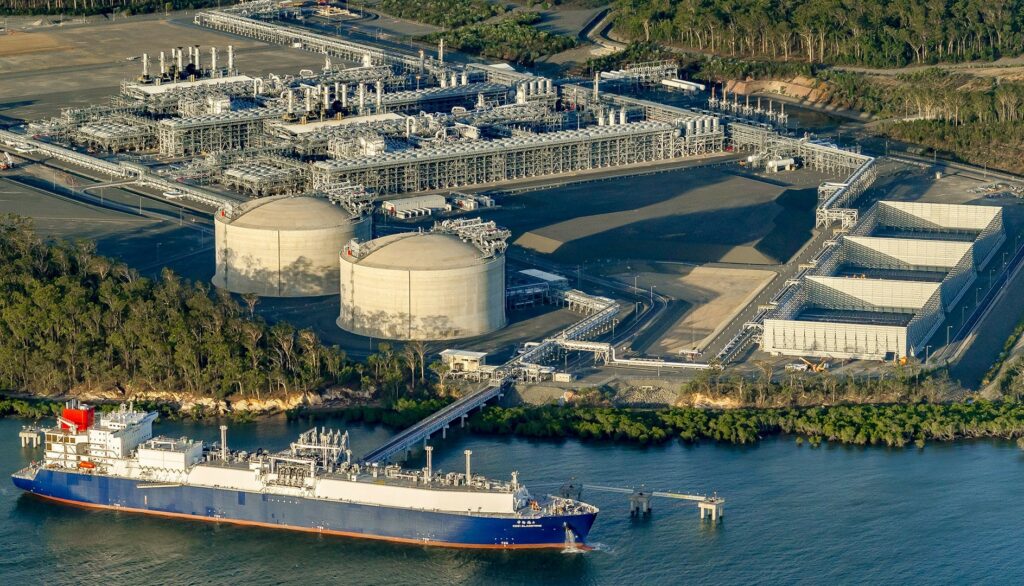The Ontario Energy Board, a quasi-judicial tribunal that controls development of the Ontario electricity system, is excited to report that “The energy transition is a global shift away from using fossil fuels (like oil, gasoline and coal) to a more sustainable, renewable energy future that includes more innovation and customer choice.” Like the innovative consumer choices confronting Haiti, on whose behalf Canada’s foreign minister Mélanie Joly is urging the Organization of American States to develop a plan to “fix fuel shortages that have caused protests, looting and a health-care collapse.” Fuel shortages cause social breakdown? Why weren’t we told?
Apparently “The OEB’s priorities are aligned with the 4 Ds of the energy transition”. Which sound like something out of a Xi Jinping Thought volume replete with the “Two Centenary Goals,” the “Three Represents”, the “Four Comprehensives” and the “Five Principles of Peaceful Coexistence” (while shunning the “Four Malfeasances” at least rhetorically). They are in fact “decarbonization, digitalization, decentralization and democratization”, not that you’d know what the 4th d stood for if you were one of their customers. The OEB also says “We are already undertaking important work that responds to the changing needs of consumers and of the energy sector.” Which apparently no longer includes providing inexpensive, reliable electricity.
As with the OEB, there are many elements of Mélanie Joly Thought that make the word “thinking” more a term of courtesy than of art. Including trying to figure out how to get more fertilizer to Latin America even as her cabinet colleagues try to get less of it to Canada. Or this gem from the Post story: “We need to support a Haitian-led solution, and we need to push (political) parties because the status quo is not an option.” So we’re going to push our ideas on them in a Haitian-led way, forcing them spontaneously to do what we say. Dawk. But if want is plenty, why shouldn’t coercion be voluntary?
The Post adds that “Joly said Canada will also try to fight online misinformation that blames soaring inflation on the United States, instead of on Russia’s invasion of Ukraine.” Presumably their first target for censorship and cancellation will be the US Federal Reserve whose Consumer Price Index chart shows the upward ramp in the cost of living began in November 2020, not March of this year. But the idea of senior ministers of Canada’s Liberal government trying to make a point by backdating history is not uncommon these days.
In this context we also note the New York Times headline “In Rebuke to West, OPEC and Russia Aim to Raise Oil Prices With Big Supply Cut”. In addition to revealing that a lot of fatuous “We are the world” rhetoric over time lacked substantive content, it underlines that the hard or merely greedy people running foreign tyrannies know perfectly well how dependent we are on real energy and how we can be made to pay through the nose if only geopolitical, economic and scientific naïfs like Ms. Joly make policy here while they make it there.
To his credit the chief of Canada’s Defence Staff, Gen. Wayne Eyre, just testified to the House of Commons standing committee on national security that “Russia and China are not just looking at regime survival but regime expansion. They consider themselves to be at war with the West. They strive to destroy the social cohesion of liberal democracies and the credibility of our own institutions to ensure our model of government is seen as a failure.” Which might be a matter of some concern to people not busy with more important things like putting out the global fire and shouldering the First World’s Burden of saving small hapless poor countries from themselves.
Elsewhere in the Times building the virtuous people at “Climate Forward” are definitely busy with that matter. Somini Sengupta agonizes over “Who gets to use gas?” in a piece about poor countries and available energy that also manages to do the “World ends, women and minorities hardest hit” thing. But the newsletter manages to concede, while disputing, that things like natural gas are vital if people are not to live lives that are “poor, nasty, brutish and short”.
Clearly even this author gets that gas is good and lack of gas is bad. She notes that many African governments are keen to develop their natural gas resources and that:
“According to the International Energy Agency, 600 million people in Africa lack access to electricity, and 970 million live without low-pollution cooking fuels, which consigns mostly women and girls to burning charcoal and wood in their kitchens. More shocking, a smaller share of the population has access to electricity today than in 2019, before the coronavirus pandemic.”
It’s not entirely clear why it’s shocking that a massive and substantially self-inflicted economic collapse would reduce the access of poor people to vital things unless you live in a cossetted cocoon in a rich Western country where you can despise and denounce the system of free enterprise even while you take all its benefits for granted. In which case you might go on to assert that:
“That problem could be solved by 2030 with investments of $25 billion a year, according to the I.E.A. – a fraction of what’s invested in global energy today. Renewables, especially solar and geothermal energy, could meet 80 percent of the electricity generation capacity needed, according to the I.E.A.”
Despite which you’d have to concede that “The same projections conclude that, between now and 2030, Africa would also need gas (around 90 billion cubic meters a year) to generate the electricity needed to produce things like cement, steel, and fertilizers.” (As for the capacity of “renewables, especially solar” to take over from fossil fuels, when Canary Media assures us “Solar is lifeline in Puerto Rico after Hurricane Fiona knocks out power” we must ask “How’s that working for them?”)
To burnish your progressive credentials on the African gas story you’d probably also want to add, as she did, that:
“Some African climate activists argue that the extraction of the continent’s natural resources has not served its people well. Nigeria is the continent’s largest oil producer, and even some villages in its oil-rich delta live in darkness. South Africa is rich in coal, but while exports to Europe have surged, South Africans deal with power cuts.”
But if these countries are misgoverned, afflicted with blights from incompetence to massive structural corruption, it isn’t the fault of the gas, is it? And making sure that what energy is available remains expensive and unreliable won’t help, will it?
Well, no. And since poor Africans desperately need energy, they get an emissions permit from “Climate Forward” because “The countries of sub-Saharan Africa account for around 3 percent of global historic emissions today. ‘If these emissions were added to Africa’s cumulative total today, they would bring its share of global emissions to a mere 3.5 percent,’ the energy agency concluded.” What global historic emissions have to do with fighting the present crisis we leave to those whose cosmic awareness enables them to see the intersectionality of all things and fix history.
Here at CDN our policy is “one idiocy at a time”. So if Haiti shows what a society looks like without the energy on which it depended, and much of Africa what one looks like that never had it, and Germany and the UK show what even an advanced one looks like as it starts to lose that energy, the obvious conclusion is…
Over to you, Ms. Joly. And good luck thinking it through and selling your boss on it. You’re gonna need it.



In the 90’s the Dominican Republic, that shares an island with Haiti, began distributing subsidized propane stoves to stop the use of wood for cooking. Thirty years later from space the DR / Haiti border is clearly visible. The Dominican Republic is covered in a thick dark green tropical forest whereas Haiti is a barren wasteland. Just like with whales, using hydrocarbons saved the forest.
To the four "Ds", you could add a fifth: "decarbonization, digitalization, decentralization and democratization" and deindustrialization.
Exactly! I've been to DR and when you fly over the island there is a very clear line separating Haiti and the DR. I talked with the locals and they told me the same thing! The one bad thing was the water supply. It makes the water in Mexico look like pristine lake water. If they would chlorinate the water like they do in Puerto Rico they could probably have fewer health problems. I had a coworker order a hamburger and he removed the veggies and got sick as hell. The onsite doctor made him a medication and he used tap water to mix in the medication! I had to practically carry him to the airport and plane and fly him back to PR and get him proper treatment. I wonder how much healthier the worlds population could be with the proper use of chlorinated water supplies? I just wonder if they are going to classify chlorine as a green house gas next?